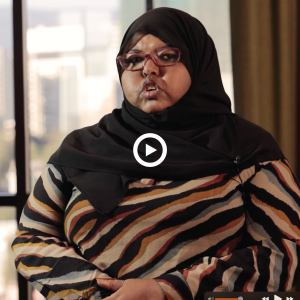In this interview, Sahra Koshin shares her insights on the XCEPT project and its impact. She highlights the importance of bringing together researchers and policymakers to engage in meaningful discussions on key issues. Sahra also emphasizes the value of regional representation in the project ensuring that local perspectives are included in the conversation.
She discusses her research on the miraa (also known as khat) trade and the role of women in this industry. She points out the lack of data on conflict-affected regions in Africa and how the XCEPT project has provided in-depth analysis on different types of conflicts and their impact on communities. Most importantly she appreciates how the project focuses on the realities of daily life and livelihoods across the continent.

Minor Demarcations, Micro-Dams—Major Drama? Ethno-territorial expansionism and precarious peace in the Oromia–Somali borderlands of eastern Ethiopia
The report highlights the overlapping claims to and distributive struggles over territory and resources in the Oromia-Somali borderlands which animated inter-regional competition between the Oromia


